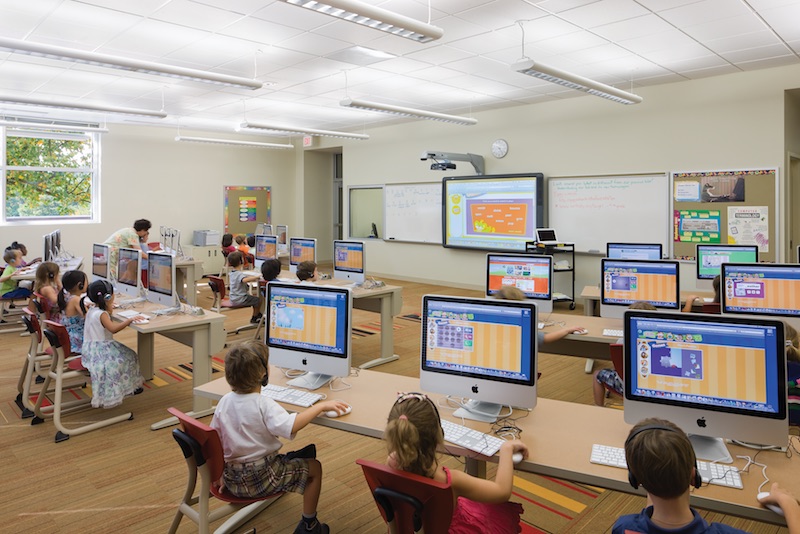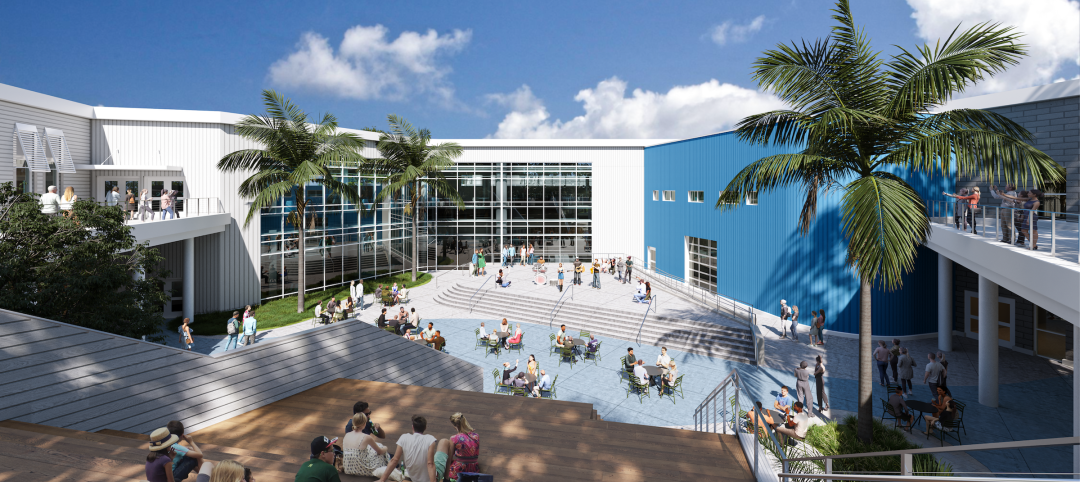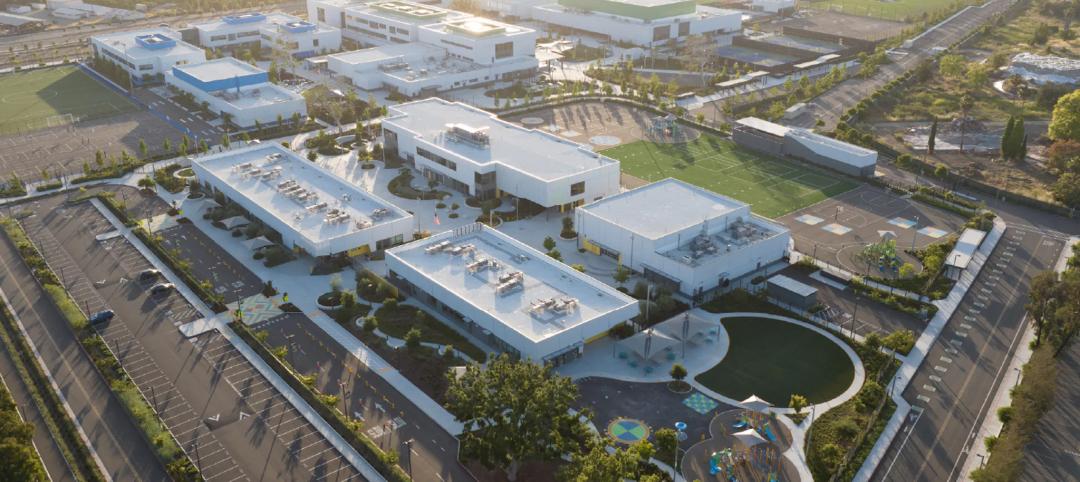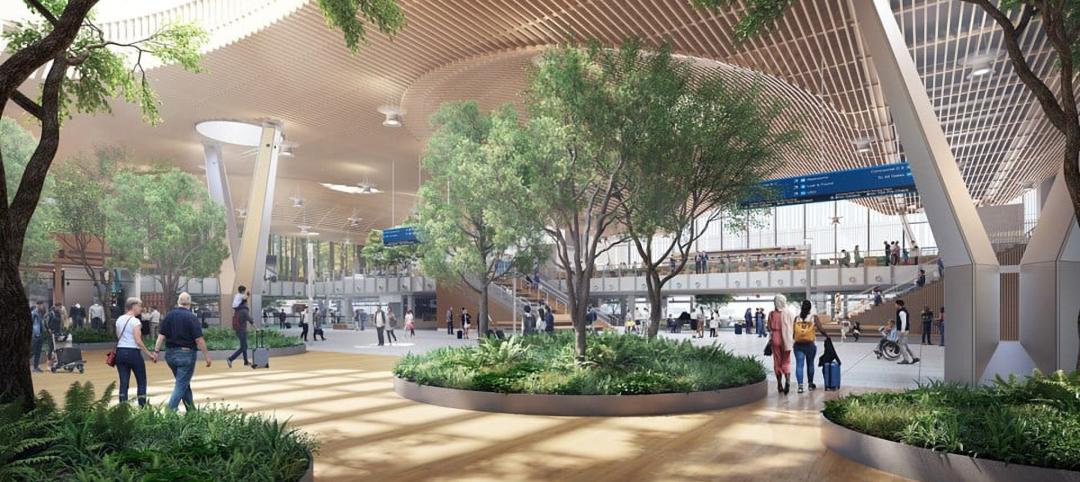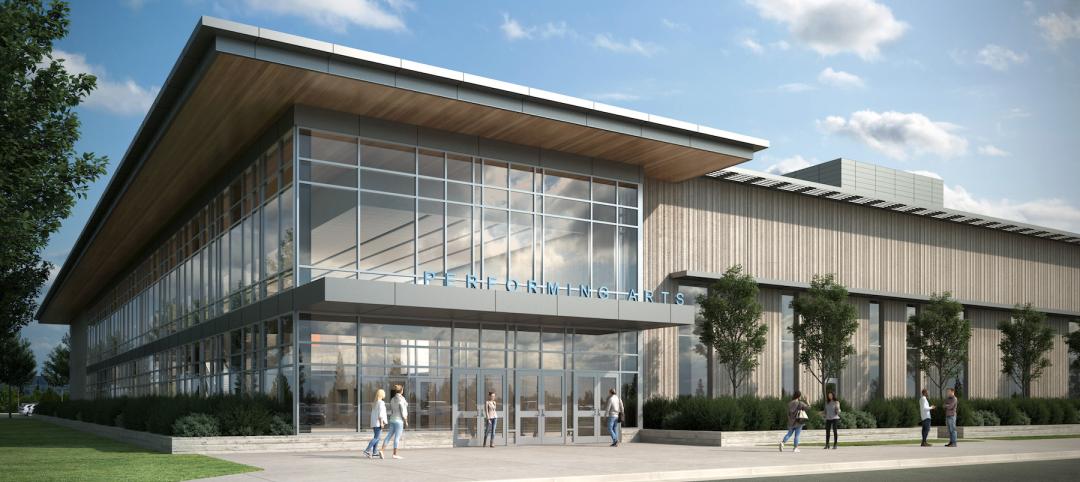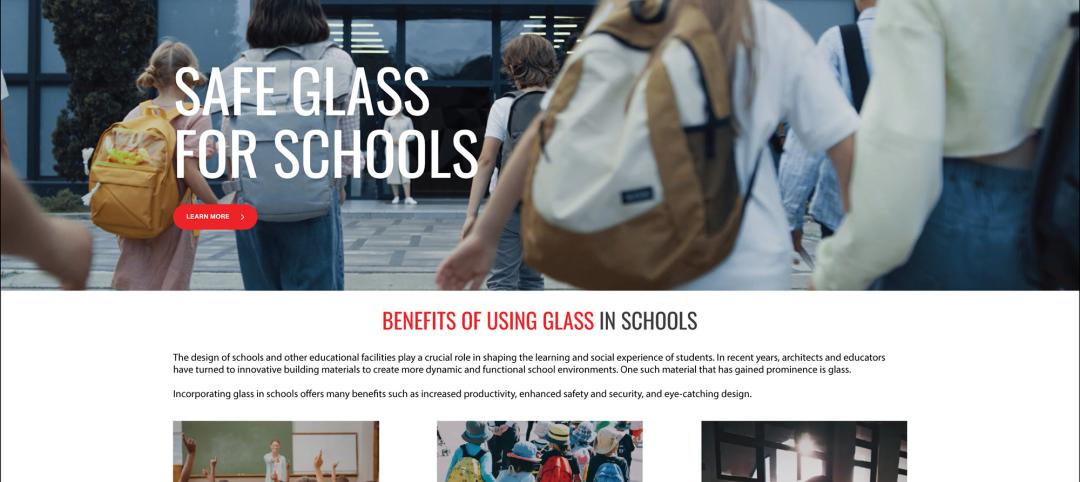As school districts explore new ways to reach the broadest number of students, myriad teaching methods—some with one foot in psychology and the other in commerce— are seeping into the educational bloodstream. As a result, AEC teams are being asked to design and build schools with enough flexibility to adapt to changing pedagogies.
Architect Richard Berliner singles out a K-8 charter school in Lancaster, Calif., that “doesn’t have a single traditional classroom.” It follows the teaching blueprint of ILead—for International Leadership and Entrepreneurial Development, inspired by Stephen Covey’s book and program “The Leader in Me.” At USC Hybrid High School—a personalized college-prep program developed by the charter management organization Ednovate and affiliated with the University of Southern California—teachers weave yearlong themes (such as “Know Yourself ” or “Know Your World”) into their students’ coursework.
Last September, 10 campuses nationwide (from among 10,000 applicants) received $10 million each to create “a high school of the future” through XQ: The Super School Project, an organization of educators and engineers launched last year by Laurene Power Jobs, the widow of Apple cofounder Steve Jobs.
Like other XQs, Vista High School, in the North San Diego area, has a year to implement its plan and five years to incorporate XQ’s program. The details of what this will mean for the physical school are still being worked out. Right now, some Vista classes are conducted in modular trailers. But the campus has 50 acres, “so we have lots of room to maneuver,” says Ashley Johnson, Architectural Designer at Berliner Architects, which is designing Vista’s XQ campus. The firm envisions a high school with dedicated classrooms interspersed with rings of flexible and common spaces.
The high school will retain its Personalized Learning Academy, a school within a school that replaces conventional classes with individualized coursework and online curricula. The school has contracted with software developers to design an app that will chart students’ progress in mastering skills and completing projects.
Related Stories
K-12 Schools | May 15, 2024
A new Alabama high school supports hands-on, collaborative, and diverse learning
In Gulf Shores, a city on Alabama’s Gulf Coast, a new $137 million high school broke ground in late April and is expected to open in the fall of 2026. Designed by DLR Group and Goodwyn Mills Cawood, the 287,000-sf Gulf Shores High School will offer cutting-edge facilities and hands-on learning opportunities.
K-12 Schools | May 13, 2024
S.M.A.R.T. campus combines 3 schools on one site
From the start of the design process for Santa Clara Unified School District’s new preK-12 campus, discussions moved beyond brick-and-mortar to focus on envisioning the future of education in Silicon Valley.
K-12 Schools | May 7, 2024
World's first K-12 school to achieve both LEED for Schools Platinum and WELL Platinum
A new K-12 school in Washington, D.C., is the first school in the world to achieve both LEED for Schools Platinum and WELL Platinum, according to its architect, Perkins Eastman. The John Lewis Elementary School is also the first school in the District of Columbia designed to achieve net-zero energy (NZE).
Biophilic Design | May 6, 2024
The benefits of biophilic design in the built environment
Biophilic design in the built environment supports the health and wellbeing of individuals, as they spend most of their time indoors.
K-12 Schools | Apr 30, 2024
Fully electric Oregon elementary school aims for resilience with microgrid design
The River Grove Elementary School in Oregon was designed for net-zero carbon and resiliency to seismic events, storms, and wildfire. The roughly 82,000-sf school in a Portland suburb will feature a microgrid—a small-scale power grid that operates independently from the area’s electric grid.
K-12 Schools | Apr 29, 2024
Tomorrow's classrooms: Designing schools for the digital age
In a world where technology’s rapid pace has reshaped how we live, work, and communicate, it should be no surprise that it’s also changing the PreK-12 education landscape.
School Construction | Apr 22, 2024
A school district in Utah aggressively moves forward on modernizing its schools
Two new high schools manifest nuanced design differences.
Fire-Rated Products | Apr 16, 2024
SAFTI FIRST launches redesigned website
SAFTI FIRST, leading USA-manufacturer of advanced fire rated glass and framing systems, is pleased to announce the launch of its newly redesigned website, safeglassforschools.com.
K-12 Schools | Apr 11, 2024
Eric Dinges named CEO of PBK
Eric Dinges named CEO of PBK Architects, Houston.
K-12 Schools | Apr 10, 2024
A San Antonio school will provide early childhood education to a traditionally under-resourced region
In San Antonio, Pre-K 4 SA, which provides preschool for 3- and 4-year-olds, and HOLT Group, which owns industrial and other companies, recently broke ground on an early childhood education: the South Education Center.


